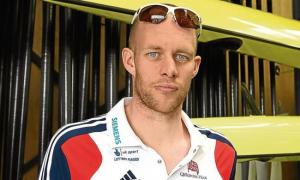
AS the Para riders wrap up in Belgium and travel 6 hours to Elzach in the black forest for the second round of the UCI World Cup, I move from Ostend to Bruges to work on finding my cycling legs.
Inspired and motivated from last week’s racing, I have managed to get out on the bike every day.
On purpose-built cycling lanes, you can ride for hours without navigating a car.
When I arrived in Belgium, I struggled on my rides with the team but now managed to tick off a 100km ride and feel like it won’t be long till all the gym work in Jamacia will pay off.
Watching the para racing last week got me thinking of how far the sport has come.
Yet not many people would have known it was even on.
In the men’s C5 class, which is for the riders with the least impairment, the winning time came with an average speed of 49.70 km/h over a 30km course.
The race saw our own GB rider William Bjergfelt finish 7th almost two minutes off the leader.
Those of you who follow cycling will remember Bjergfelt from last year’s Tour of Britain when he featured in several breakaways alongside UCI pro riders.
This highlights how far para cycling has come- let’s just say if you’re racing in the men’s C5 category and are looking for a podium, you have to be fast.
As I rode alongside the canals of Bruges I was reflecting on my ride last week along this same stretch with the team.
I was riding alongside a fellow Scottish rider, Finlay Graham.
The 22-year-old from Strathpeffer was was born with bilateral club feet, which leaves him with no calf muscle and little to no movement in his ankles. Yet he was still born to be a bike rider.
In para sport, many find their sport after a life changing injury, however Finn has ridden bikes his whole life.
You could say he was destined to be on the Paralympic cycling team.
At 22 years old he could be racing for next 20 years in the sport.
It is clear he loves racing and he was one of the athletes who benefited from the delay in the Tokyo games where he became a double silver medallist on the track and road.
Returning from the games Graham went right back into training.
A former student of Dingwall Academy who only started riding the velodrome in 2017 in Glasgow, he had only raced a couple of pursuits before winning silver in Tokyo.
A clear talent on the track, it is on the road where he looks really at home.
It is clear Graham has ridden a bike all his life and picking up a double win in Belgium, this week’s course in Germany suits him even more.
An 18km time trial up a hill plays into Graham’s strengths and will build the scots confidence for his bid to become World Champion later this year.
As we rode alongside the canal, it reminded me the freedom the bike gives people.
The full GB para road team have a mixture of injures yet in this moment they were free.
I guess I might be more philosophical about riding a bike, maybe it is my age or the stuff off the bike I live with, but to see each rider smile and love the racing left me with a great rush of those feel-good chemicals that flood the brain when we are happy.
I might be on my own this week, but I feel very connected again to my fellow para riders.
I may never step onto a podium again or even where a national top, but I will always have my bike, and as long as I am alive will love that freedom of feeling the wind in my face.
My parting memory from Belgium will be remembering Finlay Graham ride a beautiful time trial followed by a stunning road race victory to give him the UCI leaders jersey.
That and our spin along the canal.

.png?w=600)





